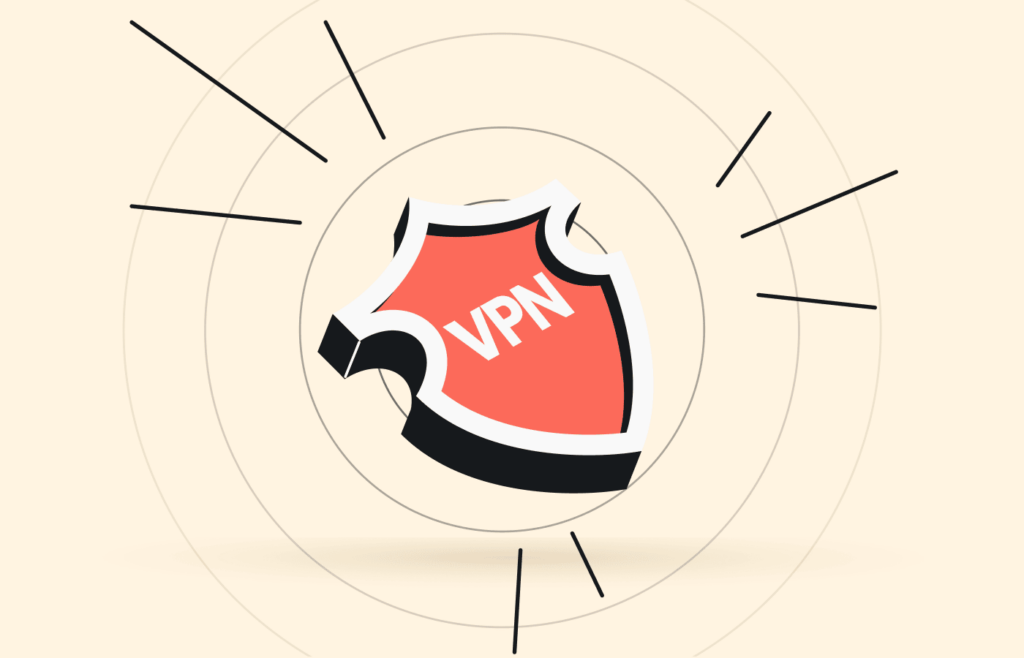
WhatsApp is a widely used social media app in many countries except a select few, including China. The government uses Deep Packet Inspection (DPI) to screen and ban unwanted apps and internet activities while restricting internet traffic. As a result, WhatsApp users who travel to China may find it challenging to communicate.
You can bypass this geo-restriction and unblock WhatsApp in China using a VPN. However, not all VPN services function effectively in China. For this reason, we have a detailed list of the most reliable VPNs to help you use WhatsApp seamlessly in China.
How to use WhatsApp in China – Quick guide
- Subscribe to a reliable VPN. NordVPN is an excellent choice.
- Download and then install the VPN app on your device.
- Connect to a server from any country, like Japan.
- Opt for a server close to you for the best speeds.
- Use WhatsApp and enjoy texting or calling your family, friends, etc.
Best VPNs to use WhatsApp in China – Quick list
- NordVPN: Large server bank for unblocking WhatsApp in China. It offers stealth protection and strong unblocking features.
- Private Internet Access (PIA): This VPN service provides complete online protection with its automatic kill switch.
- ExpressVPN: Provides swift dedicated server networks that give you access to blocked websites and applications like WhatsApp while in China.
Why a VPN is necessary to use WhatsApp in China

China imposes strict internet censorship through its “Great Firewall,” which restricts access to various foreign news channels, free online streaming sites, premium video platforms, and other online services, including WhatsApp. As a result, you would require a Virtual Private Network (VPN) to get around this censorship and access WhatsApp in China.
When you use a good China VPN, you’re guaranteed internet privacy and security when since VPN encryption protects your activities. Consequently, the Chinese government or your Internet Service Provider (ISP) will be unable to see the websites and applications you are using. In this manner, a VPN can bypass the firewall and give you access to WhatsApp.
However, only a small number of VPNs can bypass the Great Firewall. A VPN should have powerful encryption and be able to conceal your activities to escape WhatsApp restrictions. Therefore, a VPN is necessary to unblock WhatsApp in China because the VPN server hides your real location, ensuring your internet traffic appears as if it’s originating from the server’s location.
It is vital to note that the Chinese government continuously monitors VPN usage and occasionally adjusts its censorship policies to target well-known VPN servers. So, use caution when using VPNs in China and only use VPNs offering obfuscated servers, as they will hide your traffic and won’t show the prying eyes that you are accessing something restricted.
In addition, China only permits VPNs authorized by the country and restricts any VPNs run by other governments. Despite China’s prohibition on unofficial VPNs, there haven’t been any reports of foreign visitors being penalized for using them. However, do not use VPNs for any illegal activity.
Also read: How to Watch Netflix in China
Best VPNs to use WhatsApp in China – Detailed list
1. NordVPN

Dedicated and reliable VPN network with excellent unblocking capabilities. It allows you to bypass China’s Great Firewall and use WhatsApp without restrictions.
Pros
- Strict no-logs policy for privacy
- Robust security measures and encryption
- User-friendly and intuitive interface
Cons
- Limited support for some devices
NordVPN allows you to access WhatsApp and other services from any location in the world, including China, with its extensive server network. You can secure your online activities with NordVPN using 256-bit AES military-grade encryption. It also provides access to additional security features by allowing you to connect to Tor over a VPN or a double VPN.

In addition, this VPN service allows you to automatically route your DNS requests through its secure servers, preventing any potential location-revealing DNS breaches. NordVPN works well with iOS, Android, and macOS, among other devices. You can also use this VPN on up to 10 devices at once.
Furthermore, NordVPN offers a 30-day money-back guarantee and ensures fast connection speeds.
2. Private Internet Access (PIA)

A leading and secure VPN that provides stealth privacy and anonymity. This top-notch service allows users to bypass Chinese censorship and communicate freely with friends and family on WhatsApp.
Pros
- Affordable pricing plans
- Allow torrenting and P2P file sharing
- Dedicated customer support team.
Cons
- Does not offer free trial
Private Internet Access (PIA) is an excellent choice for bypassing WhatsApp restrictions in China. It features an automatic kill switch with three settings: off, always, and automatic, providing good security. This VPN automatically disconnects when you lose your internet connection to give you privacy and prevent third parties from monitoring your online activities.

This VPN service also boasts military-grade encryption and an extensive server network that allows you to use WhatsApp in China safely and quickly.
Additionally, you can use other apps simultaneously with the split tunneling feature. Private Internet Access (PIA) is budget-friendly, fully functional, and features optimized applications for various devices, including iOS and Android.
3. ExpressVPN

A top-notch VPN service that unblocks WhatsApp in China. With its advanced encryption, security protocols, and secure servers, you can bypass geo-restrictions without hassle.
Pros
- Offers high-speed connection speeds
- Strong encryption and a top-tier security system
- User-friendly interface and easy setup.
Cons
- Expensive as compared to other VPN providers
ExpressVPN provides servers in the US, UK, Japan, and France tailored for use in China. It confirms through its support that it keeps an eye on the performance of these servers to make sure they operate dependably in China. As a result, this VPN service is most effective to unblock WhatsApp in China since it also offers reliable connections.

This VPN service features a kill switch to secure your connection and disable all internet traffic until your VPN connection has been restored if you lose it for some reason. Your entire private information is kept secure in this manner at all times. You don’t need to explicitly activate Network Lock because it typically has this feature enabled by default.
In addition, it features integrated DNS leak protection, ensuring that the firewall does not stop you from making WhatsApp calls. When ExpressVPN is connected, IPv6 leak protection hides your actual IP address. You can manually enable this extra security measure by checking ExpressVPN’s advanced settings, which is beneficial if you use the service in China.
ExpressVPN costs higher than most VPNs, starting at $6.67 monthly. Despite the price, the speed and usability make it worthwhile. Depending on ExpressVPN’s current promotions, you can save up to 49% with the service’s discount.
Furthermore, short-term and long-term subscriptions are available with ExpressVPN. Longer-term plans result in more savings, like other VPN services. Additionally, this VPN accepts Bitcoin as a payment option for increased anonymity. This VPN also offers a 30-day risk-free money refund policy if you change your mind.
How to choose a VPN for WhatsApp in China
Choosing a reliable VPN that suits your preferences is essential to accessing WhatsApp in China. VPNs often get shut down in China, and as a result, recommendations are constantly changing.
However, the following general guidelines and recommendations can facilitate your search for the best VPN to help you bypass government restrictions and unblock WhatsApp in China.
- Search for recent recommendations for VPN services. A service that was effective in China a year ago might not be effective now.
- Research on Westerners’ preferred VPN services. Westerners make up the majority of WhatsApp users, so someone else may have already found a solution.
- Be ready to invest financially. Although reliable VPNs are inexpensive, they aren’t overly pricey either.
How to configure a VPN for complete anonymity
VPNs are the ultimate tools for bypassing censorship and ensuring you stay completely anonymous online. However, they are not 100% perfect. In truth, complete anonymity is not attainable, but you can get a semblance of it.
Here’s our expert suggestion on the ways you can increase your online anonymity with a VPN:
- Create a separate account: If you want to stay anonymous, you would be better off avoiding using your actual name to open the WhatsApp account.
- Refrain from being predictable: Avoid cultivating a pattern when using the internet. Therefore, avoid revisiting similar websites in a repeated order.
Is it risky to use a VPN in China?

Whether or not people in China should use a Virtual Private Network (VPN) is somewhat debatable. The Great Firewall, a system of strict internet censorship rules in China, prevents access to foreign websites and services. Therefore, people in China often use VPNs to get around these limitations and access restricted content.
Although using a VPN isn’t directly against the law, it is quite risky. Anything you say could be used against you, even with a VPN. As a result, any speech that the Chinese authorities determine illegal will surely be subject to legal action.
The Chinese government has taken action to crack down on illegal VPN use, and occasionally VPN services have been interrupted or even temporarily shut down. You may discover that you must surrender your smartphone when moving between Chinese cities or crossing borders. Authorities may destroy VPN programs used to get around the GFW and scan your phone for any potentially unlawful content or activity.
Using a VPN in China is not specifically harmful or prohibited, but you can encounter several other issues. So, be cautious when communicating with your internet within China at all times.
Additional tools and methods to bypass restrictions on the Great Firewall
You may need tools other than a VPN service to use the internet effectively in China without any restrictions. These tools make your internet traffic appear from locations outside China. Over time, several techniques have been created by those attempting to get over the Great Firewall, and they include:
- Tor: Tor is a sophisticated anonymity tool. Even though governmental censors have shut down all Tor network entrance points, alternative access strategies have been devised. Some strategies use the Tor network and covert proxies to bypass the firewall secretly.
- Open Proxies: This straightforward workaround was successful many years ago, but the GFW’s sophisticated deep packet filtering quickly rendered it useless.
Steps to take before taking a trip to China
Before you plan a trip to China and begin to use WhatsApp during your stay, there are a few things you need to do. First, purchasing a VPN once you get to China will be tricky since the software is blocked in the country. The Google Play Store will not work in the country. So here’s what to do:
- Download the dedicated VPN app: Depending on the VPN you are most comfortable using and the device of choice, head to the Apple or Google Play Store.
- Purchase the VPN before going to China: It is advisable to download and install the VPN app before you get to China because you may be unable to download one since the VPN sites are all blocked in the country. There are mirror websites for VPNs that are easily accessible in China but also quickly flagged and blocked. So, endeavor to download and install your VPN before you take the trip.

Alternatives to WhatsApp in China
WhatsApp is just one of the many other apps blocked in China, but the good news is they also have usable, passable alternatives. These alternatives are often made in and for the Chinese community and can function within censorship. The alternative to WhatsApp in China is WeChat or 微信 (Weixin) in Chinese.
WeChat is similar to WhatsApp but is more than a messaging app. It is a versatile and widely popular app used by citizens. Its functions aside from messages include a payment system, microblogging platform, social network, cab-hailing service, and much more.
What social media platforms are banned in China?
As stated earlier, there are other social media apps banned in China. These apps do not meet the country’s privacy laws and, as such, are not allowed to function. Below are the social media apps banned in China:
- YouTube
- Tumblr
- Snapchat
- Clubhouse
- Quora
- Discord
- Viber
- Messenger
- Telegram
- Signal
- Tinder
However, we must add that while these apps are banned, the Chinese government provides local alternatives to them. Take YouTube, for example; the alternative is Youku Tudou, and Weibo replaces Twitter. Xiaohongshu replaces Instagram, while QQ replaces Facebook.
FAQs
The Chinese government does not punish any tourists for the use of VPNs. VPNs are not illegal as far as we can tell; there are, in fact, government-owned VPNs which are allowed to work. So to stay safe in China, you can use premium VPNs, which are not among the ones the government permits. Using government-owned VPNs is risky, as they would erase any privacy.
The Chinese government banned WhatsApp and other social media apps because it was convinced they were used to spread “undesirable” information. The issue here is that only the government gets to decide what is desirable or what isn’t. By order of China’s Computer Information Network and Information Security, Protection, and Management Regulation, apps like WhatsApp are banned in China. The regulatory body has existed since the advent of the Internet. However, with a VPN, you can effectively circumvent the ban and use WhatsApp, as we have established in this piece. VPNs can block the government and ISPs from monitoring your activities and, as such, will be unable to block you.
Countries like Cuba, North Korea, China, Iran, and Syria have banned WhatsApp. The app is also banned in the UAE, albeit to a partial extent — you can only use it to text. You can subscribe to a premium VPN such as ExpressVPN to stay when visiting these areas.
The equivalent of WhatsApp in China is WeChat, which the government approves for use in the country. WeChat, however, is not private; the government has full access to the users’ WeChat data and private activities. Whatsapp encrypts its conversation, keeping them perfectly private. And you can unblock and use WhatsApp once you get a premium VPN to bypass the censorship.



